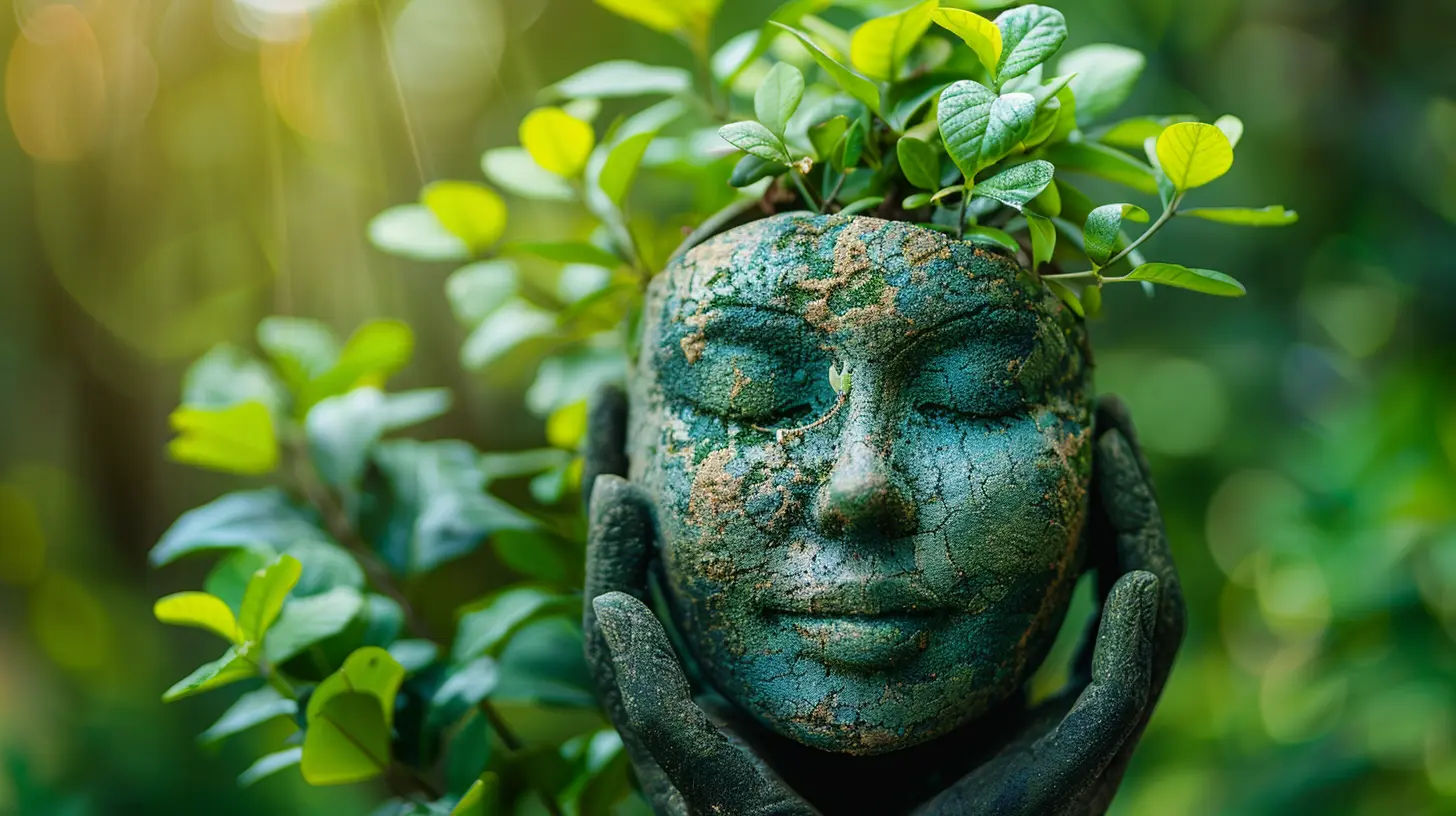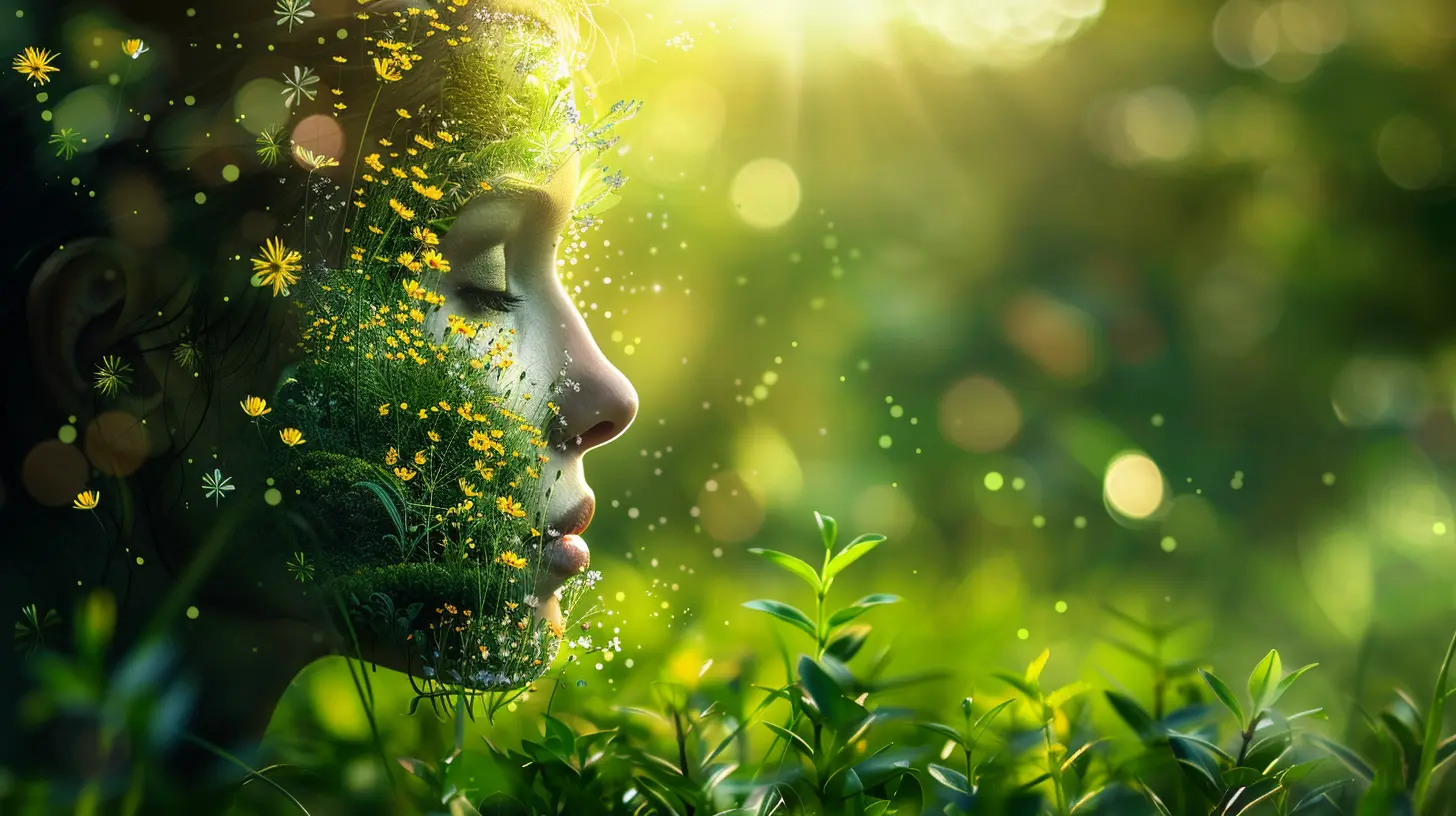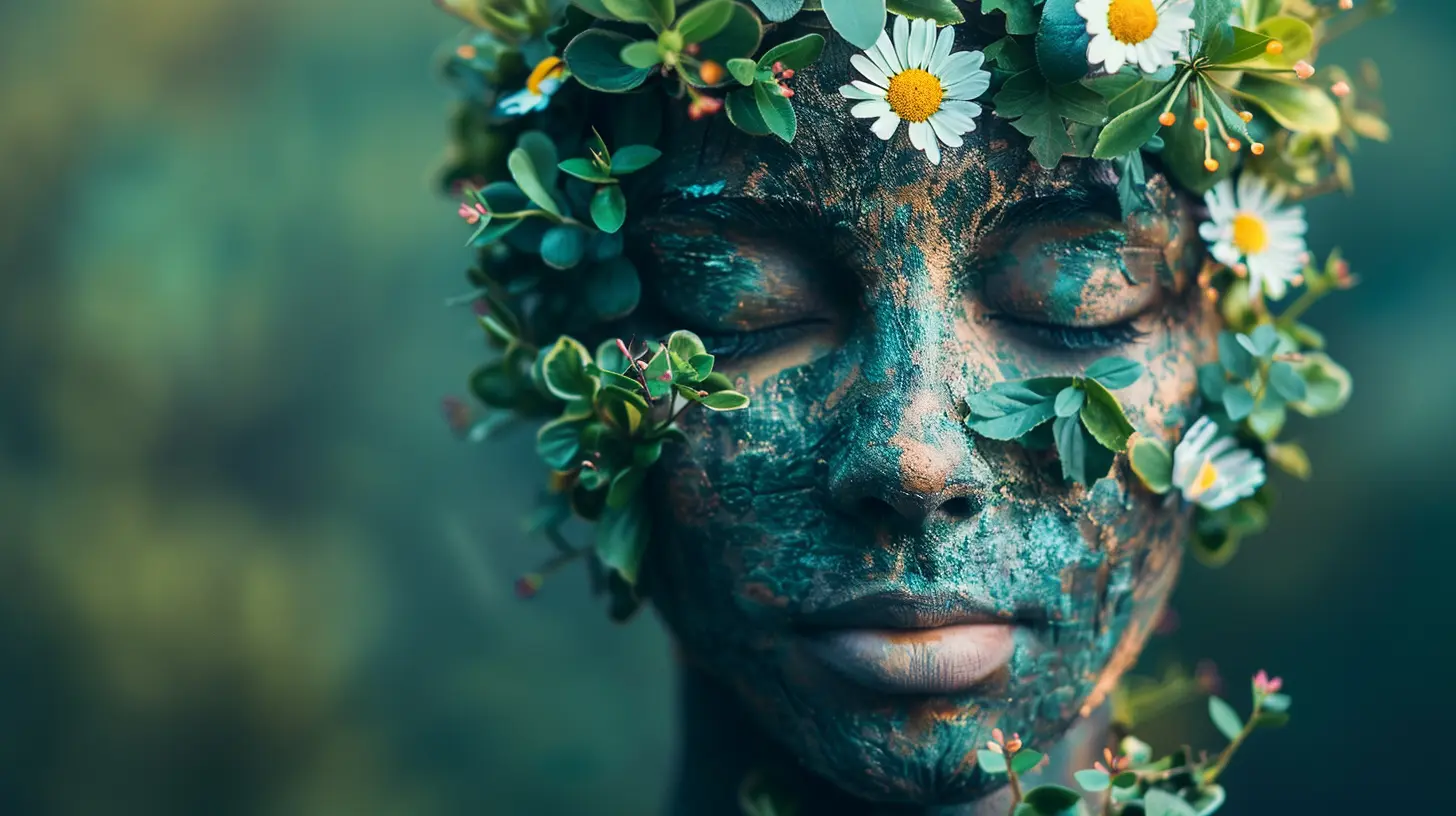The Healing Power of Nature: Ecotherapy and Mental Health
14 August 2025
Have you ever felt your shoulders drop the second you stepped into a forest? Or noticed how your heartbeat slows when you’re near the ocean? There's something ancient and raw in nature that touches a part of us we don’t often listen to. This isn’t just poetic musing—it’s a real, science-backed phenomenon. Welcome to the world of ecotherapy, where the wild meets well-being, and the green outside has the power to heal the chaos within.
In this article, we’re diving deep into how nature helps restore our mental health and why now, more than ever, we need to lace up our hiking boots and head out the door—both metaphorically and literally.
What is Ecotherapy Anyway?
Imagine therapy without the couch. Instead, you're surrounded by birdsong, rustling leaves, and the earthy scent of pine. That’s ecotherapy. Also known as nature therapy or green therapy, this approach connects individuals with the natural environment to improve psychological well-being.It's not all tree-hugging and barefoot walks in the park (although there's nothing wrong with those). Ecotherapy involves structured activities like gardening, wilderness retreats, animal-assisted therapy, or mindful walks in nature settings—guided or solo.
The idea is simple: reconnecting with nature reconnects us with ourselves.
Why Nature is the Ultimate Therapist
Let’s be real—modern life is noisy. Our minds are bombarded with emails, traffic, deadlines, and the ever-draining blue light of our screens. We’ve become detached from the natural rhythms our bodies once knew instinctively.Nature, in all her wild beauty, offers what no office or shopping mall ever can: silence, space, and stillness. These are the ingredients our minds and hearts need to truly rest.
A Natural Reset Button
Science backs this up. Spending time in nature reduces cortisol—the stress hormone. It lowers blood pressure, eases anxiety, and boosts mood. Nature literally soothes the nervous system. It's like hitting the reset button on a frazzled brain.Boosting the Brain
Researchers have found that people who spend more time outdoors have improved memory and concentration. Even just looking at greenery through a window helps. Nature doesn’t just make us feel better—it makes us function better.Disconnect to Reconnect
In a world that never stops buzzing, nature invites us to slow down. It’s a break from constant connection, a chance to be present. Suddenly, that email can wait. That Zoom call doesn’t feel so urgent. Out here, breathing in the wind, we remember who we are beneath the to-do lists.
The Many Faces of Ecotherapy
Ecotherapy isn’t one-size-fits-all, and that’s the beauty of it. It can be as simple as sitting under a tree or as structured as a group therapy hike.Let’s look at a few forms it might take:
1. Green Exercise
This is physical activity done in natural environments—think walking, cycling, or yoga in the park. The impact? A double dose of endorphins from both movement and nature.2. Horticultural Therapy
Gardening isn’t just for grandmas. Digging in the dirt, nurturing plants, and watching something grow has powerful psychological benefits. It gives a sense of purpose, patience, and peace. Plus, there’s something deeply healing about getting your hands dirty.3. Nature Meditation
Taking mindfulness into the wild turns it up a notch. Focusing on the rustle of leaves or the rhythm of your breath as you walk can anchor you more deeply than any meditation app ever could.4. Wilderness Therapy
This one’s more immersive. Think multi-day retreats, camping trips, or guided adventures often aimed at healing trauma, addiction, or deep emotional wounds. Nature becomes both a mirror and a healer.5. Animal-Assisted Therapy
Interacting with animals in natural settings—like equine therapy or forest adventures with therapy dogs—can work wonders for those struggling to express emotions or build trust.
The Science Behind the Serenity
It’s not just tree-huggers and mystics singing nature’s praises. There's rock-solid science here too.Nature Reduces Stress
A study published in Frontiers in Psychology found that spending just 20 minutes in nature significantly lowers cortisol levels. That’s less time than an average TV episode—and way better for your mental state.Nature Heals Depression
Ecotherapy has shown promise in treating mild to moderate depression. The act of being outside, engaging with the natural world, and feeling part of something larger combats feelings of isolation and hopelessness.ADHD and Focus
For children and adults with ADHD, spending time in green spaces improves attention and impulse control. It’s like giving the brain a breath of fresh air—literally and figuratively.Nature and Emotional Resilience
Being in nature reminds us that everything—seasons, storms, flowers—goes through cycles. In a world obsessed with productivity and perfection, nature gently teaches that it’s okay to rest, to fall apart, to bloom again.When you hike a mountain or weather a sudden rainstorm, you build resilience. You get to know your strength. That muddy trail becomes a metaphor for life’s messy paths—and how you can keep walking, one step at a time.
Real Stories, Real Healing
You don’t need a clinical diagnosis to benefit from ecotherapy. Maybe you’re just feeling off. Disconnected. A little lost.Take James, a burned-out software developer who began walking in his local nature reserve every morning. Within weeks, his sleep improved, his anxiety eased, and he felt more focused at work.
Or Sarah, battling grief after losing her partner. She started planting a memorial garden. Each flower became a story, a memory, a step in healing.
These aren’t fairy tales. They’re everyday examples of how nature gently tends to our inner wounds.
How to Start Your Own Ecotherapy Practice
You don’t need a forest or a therapist to start reaping the mental health benefits of nature. Here’s how to ease into it:1. Make It a Ritual
Start small. A daily walk in the park. Five minutes with your feet in the grass. A weekend hike. Let nature become part of your routine—not a rare escape, but a regular refuge.2. Unplug While You Plug In
Leave your phone behind. Or at least turn it to airplane mode. This time is for you. For the trees. For what’s real.3. Use Your Senses
Feel the breeze. Listen to the birds. Smell the bark. See the play of light through the leaves. Nature is sensory healing in its purest form.4. Journal the Journey
Bring a notebook. Reflect on what you see, feel, and think. Sometimes, the inner world opens up more when you tune into the outer one.5. Try Guided Experiences
If you’re feeling stuck, look for ecotherapy groups, forest bathing experiences, or nature-based workshops near you. Sometimes healing needs a guide.The Planet Heals Us—Let’s Return the Favor
Here’s something profound: the more time we spend in nature, the more we care for it. As our roots grow deeper into the earth, we become natural stewards of it.Ecotherapy doesn’t just heal the mind. It awakens a connection that runs both ways. When we realize how deeply we rely on the planet for our healing, we’re moved to protect the very spaces that made us whole again.
It’s not just self-care. It’s Earth-care too.
A Final Whisper from Nature
If you remember one thing, let it be this: nature isn’t far away. It’s not something you have to chase. It’s there—in a garden, a tree, a patch of sky above your balcony.Ecotherapy reminds us that healing doesn’t always require pills or screens or talking. Sometimes, it just asks for stillness. For slowness. For the courage to be quiet enough to hear the wind inside you.
So next time you're feeling overwhelmed, anxious, or just plain exhausted—step outside. Breathe deep. Let the earth hold you.
Because in the arms of nature, we find that rarest of things: peace.
all images in this post were generated using AI tools
Category:
Mental HealthAuthor:

Nina Reilly
Discussion
rate this article
1 comments
Shannon Matthews
This article beautifully highlights the therapeutic benefits of nature on mental health. Ecotherapy offers a refreshing perspective on healing, emphasizing the importance of reconnecting with the natural world. It's a powerful reminder of how nature can nurture our well-being and resilience.
August 20, 2025 at 2:20 PM

Nina Reilly
Thank you for your thoughtful comment! I'm glad you found the article resonates with the healing power of nature and its impact on mental health.


